A Dream Deferred: Reflections from the UK Craft Beer Writing Symposium
Fourteen and a half years ago, spending an entire Saturday in a lecture hall fell somewhere between being set on fire and being water-boarded on the “things I want to do” list. Fourteen and a half years ago, paying ten dollars for beer was fine, as long as I got at least eighteen of them. Fourteen and a half years ago, a super-sized value meal from the closest fast food chain equated to a “good meal.” Fourteen and a half years ago, sitting in the Center Theatre at the University of Kentucky for my Freshman Orientation, bored and self-assured, I knew exactly who I was and what I wanted to do. Confident in my abilities and sure of the direction of my life. I wanted to be a writer, journalist actually.
As the chosen editor (read: no one else wanted the job) of my high school newspaper, which put out six flawless (read: riddled with spelling, grammar, style, and layout problems) issues yearly, it is safe to say that journalism (read: wanting to write about music and sports) chose me. However, fate, the heartless x-ray machine that exposes your fraudulence to you and everyone else, lurked in my advisor’s office fourteen and a half years ago. Her diagnosis went something like this:
“OK, so you want to major in print journalism, right?”
“Yep.”
“That means you need to take Journalism 101.”
“Sounds good. Sign me up.”
“Oh, no. Yeah, it is closed. You’ll need to pick something else.”
“Sports writing sounds cool.”
“Well, you have to take Journalism 101 before taking any other Journalism classes.”
“How about Astronomy?”
Cue wind retreating from sails.
Fourteen and half years ago, Journalism 101 was a class offered only at 8am four days a week, and it had a limited number of sections. My advisor told me that she would save me a spot for next semester, so I wouldn’t get too far behind. A noble thought. But after a semester of convincing from the persuasive duo of Captain Morgan and Beast Light (and the subsequent hangovers that ensued), I decided that classes before 9am, and thus by default Journalism 101, and by extension Journalism as a major were not the right course for my college career or my life’s path. English professors were more my speed, not so much the early morning edition, deadline-driven, information junkies of the print media world. Ambitions of professional journalism shelved, I settled comfortably into the world of into literature and creative writing.
A Different Type of Learning
Fast forward those fourteen and a half years to present day. I teach high school English as a profession. I write for this beer blog as a hobby. And almost two weeks ago, I joined more than two hundred professional and amateur brewers, home brewers, writers, bloggers, and beer enthusiasts in that same Center Theatre at UK for the Craft Beer Writing Symposium. Jeff Rice, the event’s organizer and head of the Writing, Rhetoric, and Digital Media major in UK’s English Department, put together an amazing swath of panelists from all mediums of the craft beer writing world that had beer nerds buzzing.
As the day began, this theatre, which I had been in many times before as a student, seemed foreign. I was used to seeing hungover faces scattered throughout – glazed eyes and puffy red cheeks, or blood-drained visages ravenous for hydration and sustenance. Despite their obvious ailments though, this group sought respite in the information. They wanted to be there, traveling to Lexington, KY from as far away as Portland, Baltimore, Atlanta, Chicago, and all over the Ohio Valley, because craft beer and craft beer writing is part of their life. I wanted to be there too, and that was what was out of place. So many times before, I was encouraged (forced) to attend bizarre speakers or to screen odd films for classes with tenuous links to our content and more to do with the professor’s personal relationship to the presenter. So forgive my Pavlovian apprehensiveness upon walking through those doors. I was excited about this, still apprehensive but for reasons completely unrelated.
Where do I fit in on this spectrum? I thought myself a writer, a beer writer specifically, but the more I listened the less it seemed that I actually knew. I shouldn’t be writing about something I know so little about. But then again, that is the writer’s journey, is it not? Subjects are chosen (or bestowed upon us by an editor), and we think that we know something about the subject matter. Often that journey of learning or re-learning or shattering old ideas makes for the best story. Staring at a blank page, agonizing over the first sentence, second-guessing whether you know enough to write the piece, going over notes, letting ideas marinate, writing them down with conviction only to delete them a minute later, re-writing them, discovering a new direction/angle/take, realizing what you thought you were writing about is really not what you are writing about. From knowing to nothing and back again that is the writer’s journey. Here are the Cliff’s (or Jason’s) Notes from that day’s journey:
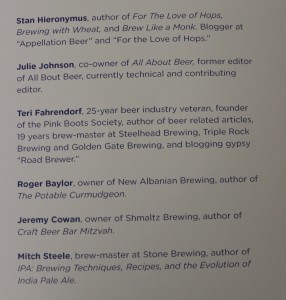 Stan Hieronymous – In his own words, “Every writer has a choice about what to say and how to say it.” In a world of multimedia that is much less work than actual reading, writers must work harder to convey pictures to their audience to hold their attention as well as a picture or video. We need to get back to the principals of good storytelling and good story crafting; it is an art.
Stan Hieronymous – In his own words, “Every writer has a choice about what to say and how to say it.” In a world of multimedia that is much less work than actual reading, writers must work harder to convey pictures to their audience to hold their attention as well as a picture or video. We need to get back to the principals of good storytelling and good story crafting; it is an art.
Julie Johnson – Beer writing has come a long way from the beginning of All About Beer Magazine (and its short-lived Beermate of the month spreads). If you want the writing and storytelling to get better then you (consumer of magazine) must demand it. That is how their magazine morphed from a publication for the chugger to a publication for the connoisseur. In the digital world this means not sharing every story, article, or list that has the world “beer” in it. Only “share” what is good.
Teri Fahrendorf – This woman has had an amazing journey in the brewing world and beyond. She has championed women in the beer industry from the onset, and has documented most all of her amazing journey. If you are a female who makes her living in the beer industry, you should most definitely join the Pink Boots Society.
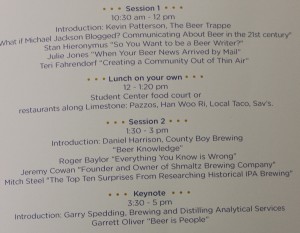 Roger Baylor – Roger kept it short, but brought up some great food for thought. From the carbon footprint of our beer to the marketing and the importance of localism. He too craves more in-depth storytelling, not just notes about a beer’s taste or selfless of your super rare bottle. The most interesting thing I took away from his speech was his reference to a book called Taste of Paradise where he compared craft beer consumption to the spice trade in Europe. Beer should not be a symbol of status.
Roger Baylor – Roger kept it short, but brought up some great food for thought. From the carbon footprint of our beer to the marketing and the importance of localism. He too craves more in-depth storytelling, not just notes about a beer’s taste or selfless of your super rare bottle. The most interesting thing I took away from his speech was his reference to a book called Taste of Paradise where he compared craft beer consumption to the spice trade in Europe. Beer should not be a symbol of status.
Jeremy Cowan – You should run up tons of credit card debt to brew and promote your beer then write a book about it, or find a friend who is an accomplished writer and have him write it for you. Then you should self publish. Also, an English degree is a prerequisite to be a brewer and self-promoter, math skills not so much.
Garrett Oliver – “Beer is not chemistry; beer is people.” We need to be telling the stories of these people, and we need to be telling it in a way that entertains and intrigues. We need to make beer writing “sexy” (for lack of a better word).
Reflections, Ramblings, and Questions
Reading the articles and blog posts of the panelists and other attendees (links to all pieces read can be found at the bottom), the consensus was that the symposium was hugely successful in talking about the past and current state of craft beer writing and in telling some fascinating and funny stories, but perhaps unsuccessful (as Kevin Patterson points out) in addressing craft writing in the digital world and precisely where we should be heading. The state of craft beer writing is in flux, like much of the publication world. There are old schoolers that want a return to traditional journalism – in-depth, well-researched stories that will draw people in through good writing and good storytelling. There are newbies that believe a tweet or a caption on a selfie is Pulitzer worthy. Two quick facts: 1) social media is not going anywhere; 2) books are not going anywhere either (well, maybe hard copies). Both serve different purposes. Both serve different audiences. Sometimes those audiences overlap. Whatever your place in the craft beer culture, promote what you want to promote. As Julie Johnson said, “Don’t share bad stuff.” If good writing and in-depth storytelling is what you crave then seek it out, and share it with people you know will appreciate it. If Buzzfeed lists and numerical ratings are more your milieu then there is plenty to fill your proverbial mug. If you take your time drinking a beer, if you savor the taste, if you enjoy the experience of trying something new then it behooves you to take the time to read about who made your beer, or how it was made, or how the Polar Vortex will impact this year’s hop yield. Does that mean all people will? Definitely not. Just because they like beer doesn’t mean that they like reading. Americans are not, by and large, a culture of readers.
Deciding what we read is just like deciding what we drink. We are consumers. Pique our interest. Writers have to know their audience (just because it is cliche doesn’t mean that it isn’t true). I know plenty of people that will never venture outside the world of big box beer. They don’t read this blog and would never read a book about any facet of craft beer. The Audacity of Hops and Brew Like a Monk and Brewmaster’s Table are niche books for a niche audience. As that audience continues to grow, consumers will seek out education in books like these. However, that interest in the beer and the culture that surrounds it comes from somewhere. It often starts with selfless, Twitter posts, and Buzzfeed lists. It progresses to reading beer blogs and magazines, perhaps even a foray into homebrewing and “how-to” books. The final and most difficult step for someone that enjoys craft beer culture is to get them to make the jump to investing hours of their lives not just drinking beer but really learning about the world behind the product they adore.
How do writers bridge that gap then, especially for the non-readers?
GBW – SHIT BEER GEEKS SAY from GOOD BEER WEEK on Vimeo.
Garrett Oliver noted that the craft beer culture has a language, vernacular, and nomenclature counter-productive to inclusion. In other words, the way we talk about beer is not welcoming, enticing, intriguing, and (least of all) sexy. Not compared to the seductive descriptions of of wine and food. He played this clip titled “Sh#! Beer Geeks Say” (embedded above) at the beginning of his presentation. Laughter echoed through the theatre because it was a room full of beer geeks who have heard (and, admittedly or not, said) many of these inane things. Decontextulizing these conversations makes them seem all the more ludicrous, pretentious, and unappealing (and pretty damn funny). Despite the humor, why do we do that to the industry we love?
Roger Baylor likened the perception of craft beer to the spice trade in Europe – a symbol of aristocracy or perhaps just a currency of cool. If we want to grow craft beer, if we want to grow craft beer writing, if we want to grow craft beer culture we cannot make it an exclusive world where you need a password to be accepted. Most people don’t want to speak or be spoken to like they do in that video. We need someone to talk about beer the way that Michael Pollan talks about food: technical when it needs to be but personal and pragmatic most of the time, which is what Garrett Oliver focused on while editing the Oxford Companion to Beer. All of the presenters noted that Michael Jackson was that beer writer, but his passing left an enormous void.
Due to its experimental nature, craft beer drinking, like travel, forces you to defy your comfort zone and experience the unknown as both a drinker and a writer. These experiences range from excruciating to delightful, but we always learn from them. We learn what we like and what we don’t like. We learn how to describe those tastes, feelings, and experiences so others can follow or avoid the path we took. Through this process, we acquire “taste,” and as Garret Oliver so eloquently stated, “If you like everything you have no taste.”
Craft beer is not elitist by nature; people in the craft beer culture make it that way. That was not what Oliver was implying. Quite the opposite, comsumers need to have taste. That doesn’t mean our taste as craft writers is superior to everyone else’s. Perhaps it is because there is an underlying blue collar persona surrounding beer? Craft writers and imbibers want to talk about it in a sophisticated way so everyone knows that they should take us seriously, but beer is the drink of the yeomanry. From presidents to soldiers, from stock brokers to pawn brokers beer is the drink of the common, average, everyday people in this country. What I did not hear at the craft beer conference: How do we get people to read about craft beer? How do we get people to want taste? Start by not condescending to them. Tell stories that make people want to be adventurous. Inspire people to make that leap out of their comfort zone and into this different culture by making it accessible.
Our goal going forward as craft writers, not technical writers but writers in a craft industry, needs not to be telling only the insular story of our own experiences (like I am doing here), but rather to introduce the world to the stories behind the product that we love, because the story is in the people. If our own self-absorption will not allow for us, as writers, to shift focus outside of ourselves and our experiences onto those in this industry that need their story told then dammit we have failed. Julie Johnson said, “There is more good beer than good writing,” and if events like this continue to exist we will continue as a community to get better.
I started off this piece telling the story about how I didn’t become a journalist, and realized that hearing the ideas and stories of our these six people reminded me of why I wanted to write in the first place. “Inspirational” sounds hyperbolic , but in the sense of asking more from myself as a writer, digging deeper, asking more questions, and caring about the story I tell, this symposium was exactly that. The speakers told captivating stories, sparking more questions than they answered, but the way that they told the story of craft beer – be it brewing or writing – brimmed with contagious passion. This was a very good symposium for writers, not just craft beer writers. The symposium reignited something that I had forgotten about. Contribution. What am I contributing to the culture that I love? The answer is not much right now beyond the occassional beer showcase (which is not to be ignored because it has its place). I am telling snippets though, not stories.
Nowadays, spending an entire Saturday in a lecture hall sits between watching Premier League games and taking a brewery tour on the “things I want to do” list. Nowadays, paying ten dollars for beer is fine, no matter if I am getting six or four or only one of them. Nowadays, not being able to pronounce most of the dishes equates to a “good meal.” Nowadays, sitting in the Center Theatre at UK for my orientation into the world of craft beer writers, excited and humbled, I have no idea where I fit into this mix of amazing and accomplished people. Self-confidence cowers, and the only sure things are that I am getting older every day, and I still want to be a writer.
Langston Hughes asked, “What happens to a dream deferred?” After “festering” for years the dream needs a spark then it “explodes” and you get a rant like this. Thanks to all the panelists and Jeff Rice for the spark and the free t-shirt. And here is to me thinking that I know something before my next venture proves once again that I know nothing. Until then, I will try to be a better contributor to the craft beer conversation.
I have read several takes on the UK Craft Beer Writing Symposium, and probably taken a few things or reacted to a few things from each in this piece. Please check out the insightful takes of others on this same conference: Hoperatives, Hey Brewtiful, Jeff Rice (even organizer), Kevin Patterson, Roger Baylor, Digital Relativity and Stan Hieronymous.


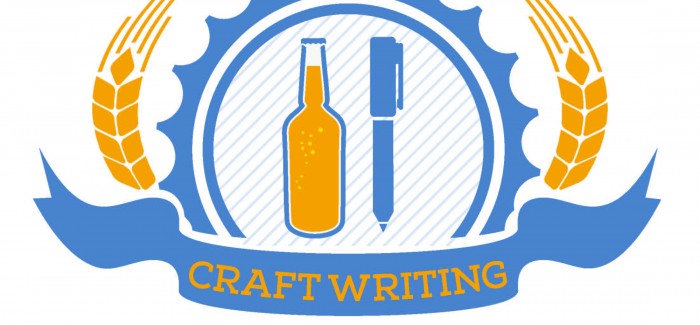
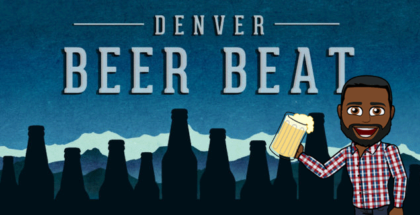
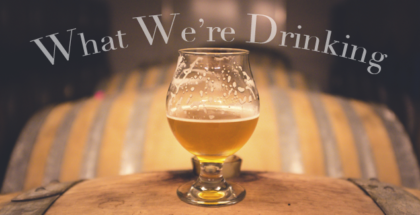
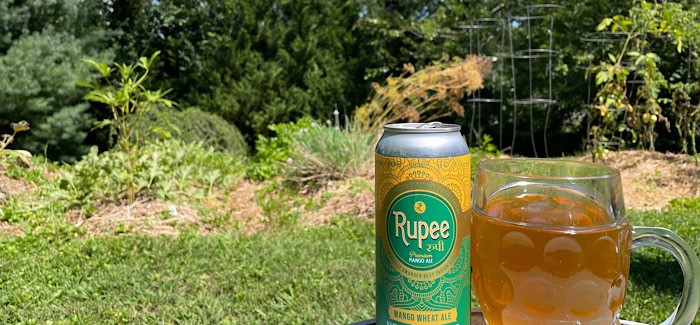
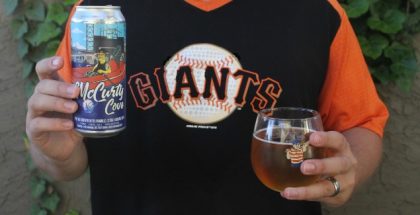
Submit a Comment